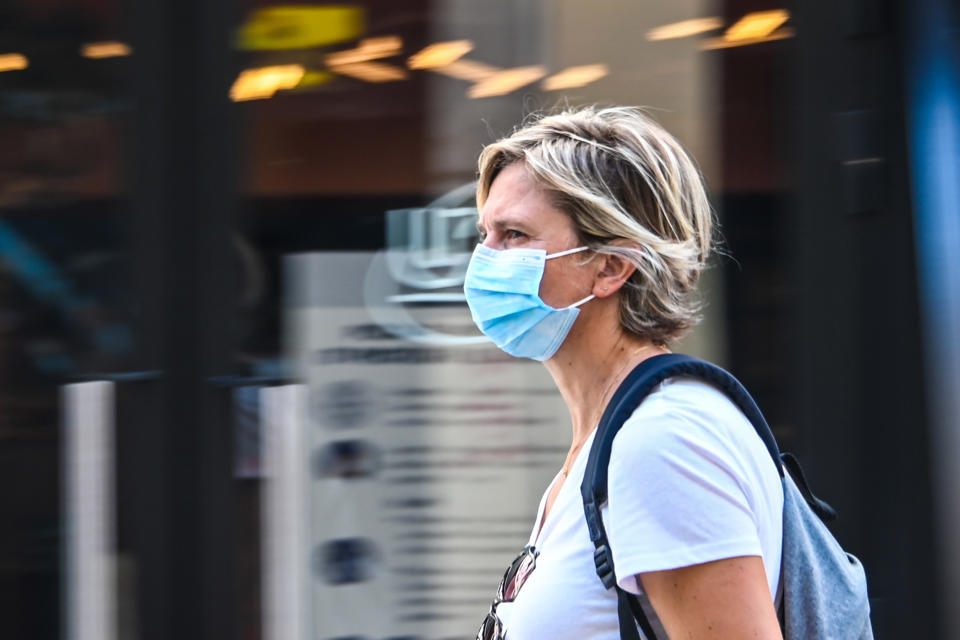Hearing problems emerging as coronavirus complication

Coronavirus survivors may go on to develop hearing loss, research suggests.
Early research suggests the infection is mild in four out of five cases, with most making a full recovery.
In severe incidences, some appear to be coming down with so-called post-COVID syndrome – defined as lingering complications after the virus has been cleared from the body.
Read more: Quarantine prevents 'less than one coronavirus case reaching UK' from Europe a week
To learn more, a team from the University of Manchester surveyed 121 coronavirus survivors eight weeks after they were discharged from hospital.
Sixteen (13.2%) complained their hearing was worse, of whom eight reported deterioration to the sense and another eight developed tinnitus – hearing ringing, whooshing or buzzing without an external source.

Coronavirus ‘could cause problems with the auditory system’
“We already know viruses such as measles, mumps and meningitis can cause hearing loss and coronaviruses can damage the nerves that carry information to and from the brain,” said study author Professor Kevin Munro.
The circulating coronavirus is one of seven strains of a class of viruses that are known to infect humans.
Others trigger everything from the common cold to severe acute respiratory syndrome (Sars), which killed 774 people in its 2002/3 outbreak.
Read more: Coronavirus: What is a cytokine storm?
“It is possible, in theory, that COVID-19 [the disease caused by the coronavirus] could cause problems with parts of the auditory system including the middle ear or cochlea,” said Professor Munro.
“For example, auditory neuropathy – a hearing disorder where the cochlea is functioning but transmission along the auditory nerve to the brain is impaired – could be a feature.”
Auditory neuropathy makes it difficult for patients to join in conversations where there is a lot of background noises, like in a pub.
The neurological condition Guillain-Barre syndrome (GBS) is also linked to auditory neuropathy and has occurred in a handful of coronavirus patients. In severe cases, GBS leaves patients struggling to swallow, walk or even breathe.
Masks ‘make communication more difficult’
Despite the results, published in a letter to the International Journal of Audiology, the scientists stressed further research is required to determine any relationship between the coronavirus and hearing loss.
The latter is not considered a common symptom of the infection, which the NHS lists as fever, coughing, and a loss of taste or smell.
While post-COVID syndrome is increasingly coming to light, patients largely complain of lethargy or even heart complications, rather than hearing problems.
Read more: Cosmetic surgery booms after lockdown
Nevertheless, the same Manchester scientists observed a link between the coronavirus and hearing loss or tinnitus in June.
The team stressed, however, only a few “low-quality” studies were analysed.
Speaking of his own experience treating coronavirus patients, Dr David Strain from the University of Exeter said: “Impairments in hearing were not an uncommon finding, including two cases of complete hearing loss.
“The majority of these resolved spontaneously, although I can recall two cases where patients were discharged with persistent tinnitus.”
Loss of taste or smell, two of the five senses, is known to occur among coronavirus-positive patients.
“It has been proposed the loss of smell is attributable to changes in energy utilisation in the cells around the nerves,” said Dr Strain.
“As these cells are present throughout the brain, it is reasonable to propose the underlying mechanism would be similar.
“This is potentially good news for suffers, as the nerves themselves remain intact, thereby chance of improvement, or even complete resolution, is much greater.”
Professor Munro added other factors, unrelated to brain cells, may also come into play.
“These might include stress and anxiety, including the use of face masks that make communication more difficult, medications used to treat COVID-19 that could damage the ear or other factors related to being critically ill,” he said.
“That is why we believe there is an urgent need for high-quality studies to investigate the acute and temporary effects of COVID-19 on hearing and the audiovestibular system.
“Timely evidence for decision-makers is urgently needed, so we need to be able to act quickly.”
Dr Strain agreed, adding the survey was carried out as part of the “Hearing Health” project, making it “prone to biases”.
“People affected [are] more likely to want to talk about it”, he said.
What is the coronavirus?
Since the outbreak was identified at the end of 2019, more than 17 million cases have been confirmed worldwide, according to John Hopkins University.
Of these, over 9 million are known to have recovered.
The global death toll has exceeded 667,000.
Although the coronavirus mainly spreads via coughs and sneezes, there is also evidence it can be transmitted in faeces and survive on surfaces.
While most cases are mild, pneumonia can come about if the infection spreads to the air sacs in the lungs, causing them to become inflamed and filled with fluid or pus.
The lungs then struggle to draw in air, resulting in reduced oxygen in the bloodstream and a build-up of carbon dioxide.
The infection itself has no “set” treatment, with most patients naturally fighting it off.
The steroid dexamethasone is being used in hospitals throughout the UK to reduce the risk of death among patients on ventilators or oxygen.
Officials recommend people ward off infection via hand washing and maintaining social distancing.

 Yahoo Movies
Yahoo Movies 
